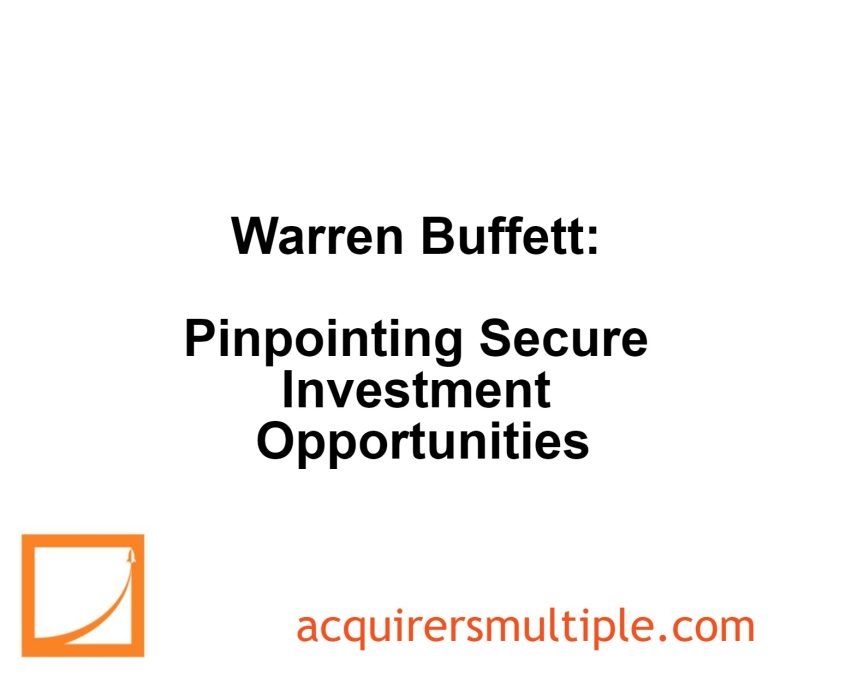During the 1997 Berkshire Hathaway Annual Meeting, Warren Buffett discusses using filters to identify businesses where future value can be reasonably estimated.
Buffett advocates discounting future returns using risk-free government bond rates, focusing on the business’s future earnings rather than potential resale value.
The goal is to ensure that investors have a clear understanding of a business’s intrinsic value by providing thorough and transparent information, similar to what Buffett himself would want if he were evaluating the business from an outsider’s perspective.
Here’s an excerpt from the meeting:
Buffett: There are a number of filters which say to us we don’t know what that business is going to be worth in ten or 20 years. And we can’t even make an educated guess. Obviously, we don’t think we know to three decimal places, or two decimal places, or anything like that, precisely what’s going to be produced.
But we have a high degree of confidence that we’re in the ballpark with certain kinds of businesses. The filters are designed to make sure we’re in those kinds of businesses.
We, basically, use long-term, risk-free government bond-type interest rates to think back in terms of what we should discount at. And, you know, that’s what the game of investment is all about. Investment is putting out money to get more money back later on from the asset.
And not by selling it to somebody else, but by what the asset, itself, will produce. If you’re an investor, you’re looking at what the asset — you’re looking at what the asset is going to do — in our case, businesses.
If you’re a speculator, you’re primarily focusing on what the price of the object is going to do independent of the business. And that’s not our game.
So we figure if we’re right about the business, we’re going to make a lot of money. And if we’re wrong about the business, we don’t have any hopes — we don’t expect to make money. And in looking at Berkshire, we try to tell you as much as possible as we can about our business, of the key factors.
Those are the things that Charlie and I — With the things we put in our report about those businesses are the things that we look at ourselves.
So if Charlie had nothing to do with Berkshire but he looked at our report, he would probably, in my view, he would come to pretty much the same idea of intrinsic value that he would come to from being around it, you know, for X number of years.
The information should be there. We give you the information that, if the positions were reversed, we would want to get from you.
You can watch the entire meeting here:
For all the latest news and podcasts, join our free newsletter here.
Don’t forget to check out our FREE Large Cap 1000 – Stock Screener, here at The Acquirer’s Multiple:



